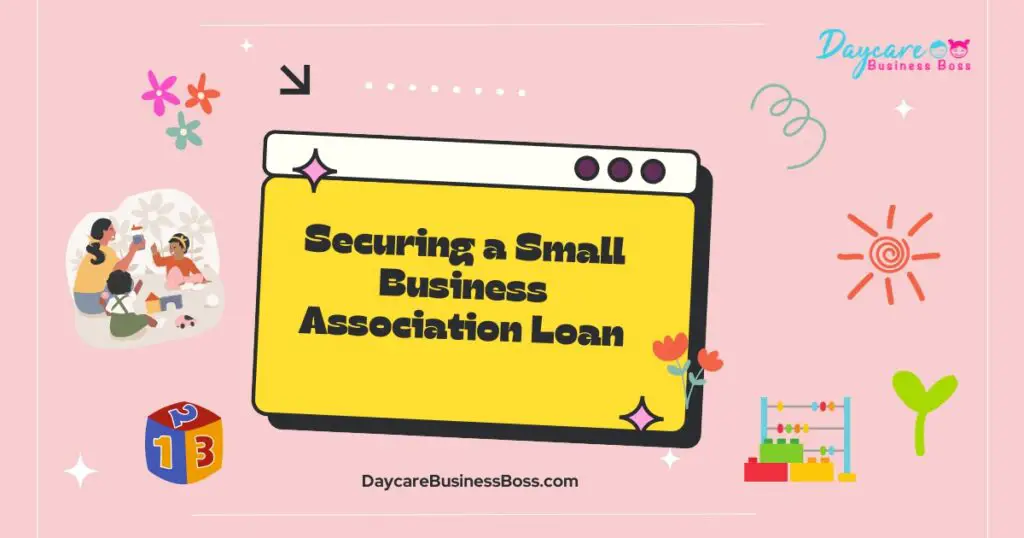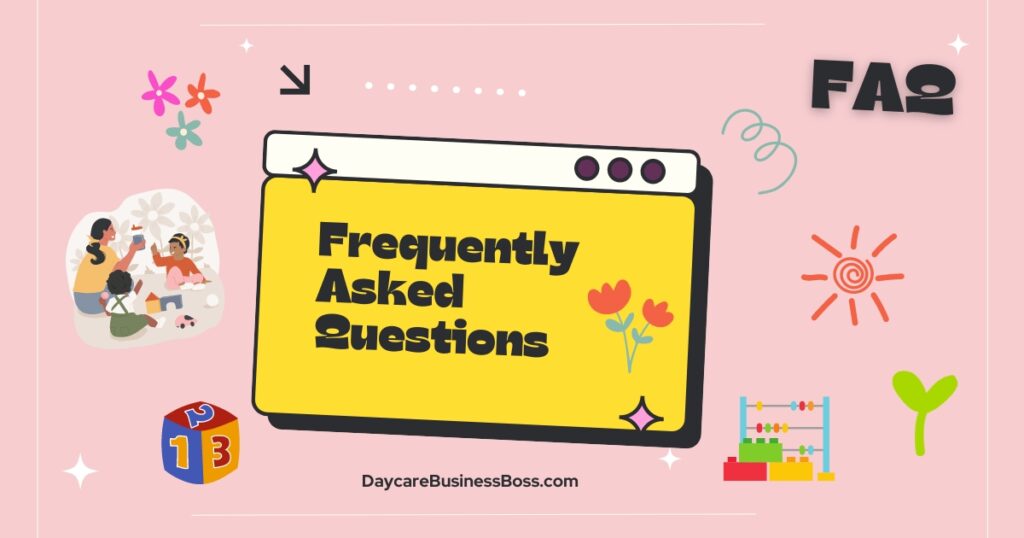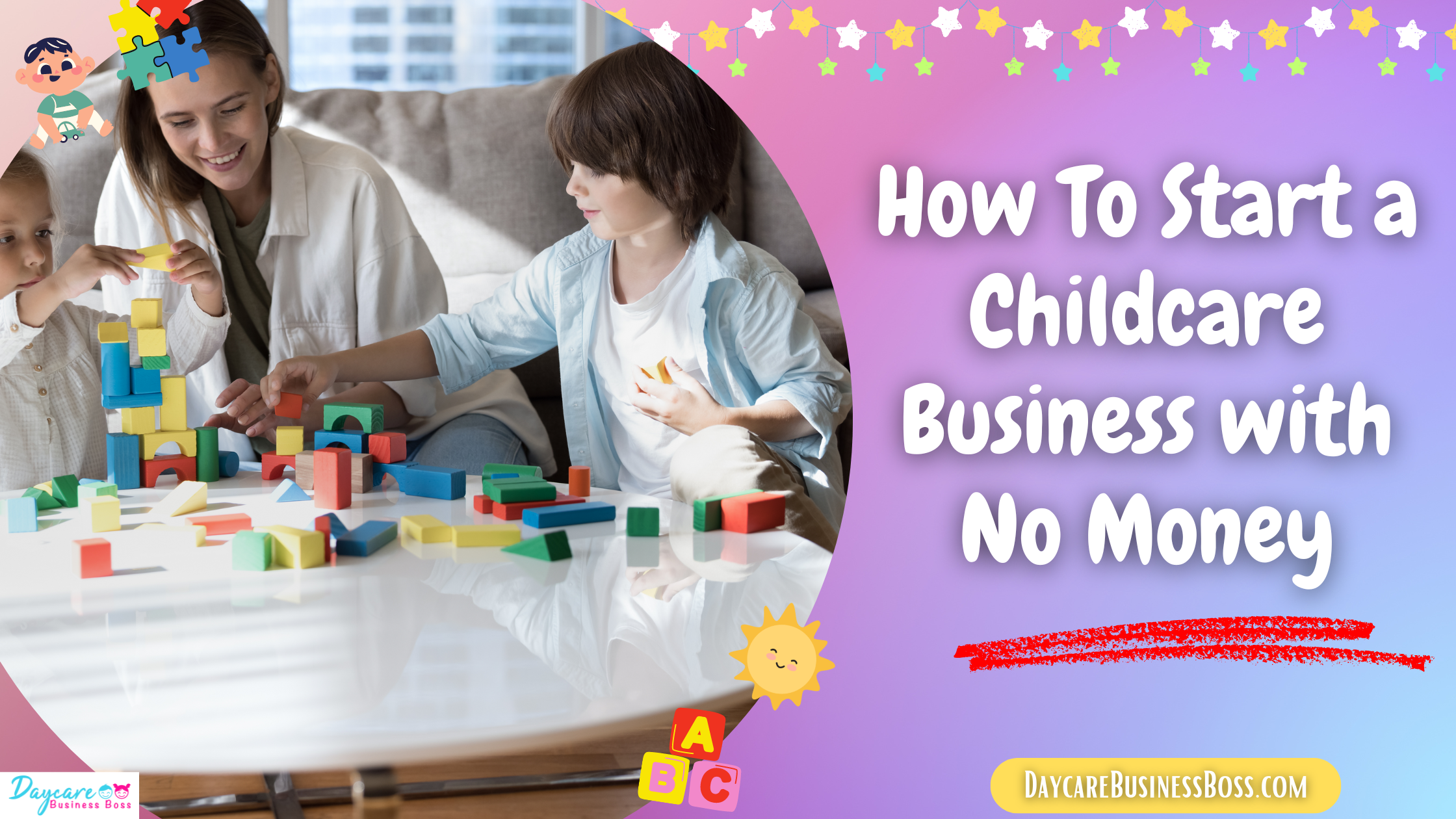Depending on the scope, the initial investment required for a childcare center ranges between $10,000 – $50,000. Thus, opening a daycare can turn out to be quite expensive! However, do not let this fact discourage you, as it is also one of the most lucrative industries across the United States.
There are plenty of ways and methods that can help you start a childcare business with no money. Begin by considering:
- Requesting a Government/Institutional Grant
- Asking for a bank loan
- Securing a Small Business Association (SBA) Loan
You can also try to attract investors, start a crowd-funding campaign, and raise money from family or friends.
But if you believe that you can invest $10,000 – $15,000 out of your own pocket, contemplate the idea of opening a home-based care center to start off your business.
Below we will outline each one of the options mentioned above for you to make an educated decision as to what will be a good fit for your needs.
Requesting a Government/Institutional Grant
In the U.S., various government institutions can help you fund your daycare business. You just need to know who to contact and how to apply for a grant. Thus, the first thing you would need to do is decide on status (e.g., profit or non-profit). Non-profit childcare centers have significantly more chances of receiving a State grant.
We then suggest you contact your licensing bureau office or a referral agency to find out more information on what are the funding opportunities available within your location. Usually, you would qualify for a ‘Child Care Development Block Grant’ — a program funded by the Department of Health and Human Services (HHS). This type of grant is specially designed to financially assist daycare centers in meeting the health and safety regulations that are required by state law.
But, if you instead apply for a different kind of funding, visit www.grants.gov. Keep in mind that government grants generally cover the entire project expenses; nonetheless, some programs require recipients to finance part of the costs.
Another way to go about it is by directly contacting private organizations affiliated with childcare. If funding is available and you meet the criteria, the odds are that it will be easier to obtain a grant through an institution.
Asking for a Bank Loan
One of the most common ways of funding a startup business is by simply asking for a bank loan. But, take into account that this does not mean it is an easy process. Financial institutions generally demand a lot of information before approving loans.
We recommend you look for institutions that offer type-specific loans. For instance, we recently found out that organizations like Bank of America and J.P. Morgan provide different options for entrepreneurs. As expected, conditions apply, and you are required to undergo a strict selection process.
Based on our experience, a bank loan might not be your best option if you are just starting. More often than not, you will need to meet a series of pre-requisites and provide information (that as a new business) you will not always have such as:
- Audited and reviewed financial statements
- Insurance information
- Copies of previous tax returns
- Details on accounts payables and receivables
- Collateral (e.g., hard assets)
- – And of course… a well-structured business plan
Securing a Small Business Association Loan

As we said, it can be tough to get a bank loan, so it is always a good idea to explore other options such as applying for a loan funded by the Small Business Association (SBA). While SBA-backed loans are open to any small business (including childcare centers), you will need to qualify before receiving approval.
Some of the most crucial requisites for this type of loan are:
- Your company first must be denied private financing.
- Your business must not exceed a certain number of employees.
- You will need to secure a commercial loan.
Now, we understand some of these may be a little confusing, so let’s break down the requirements:
1. For you to be able to qualify for an SBA loan, you will first need to prove that you did not meet the necessary requirements for a regular bank loan. Proving this should come relatively easy as more than 60% of loans at financial institutions are denied each year.
2. Considering that the maximum number of employees permitted by the SBA is 500 — and daycare centers usually require less than 30 employees you should not worry about complying with this rule.
3. The SBA does not give out the loans; they merely make them available through participating vendors. Therefore, we suggest you visit their website to find out which of the ‘pre-approved lenders’ could best suit you.
Also, it is essential to mention that there are several different loans available through the SBA. For daycare centers, we believe the best possible option is the ‘Microloan Program.’ A microloan consists of a small (up to $35,000) short-term lend. It is designed for businesses (especially not-for-profit childcare centers) that need working capital for supplies, equipment, remodeling, expanding, etc.
Furthermore, these loans are administered through designated lenders made up of non-profit organizations with experience in financing and providing businesses with technical assistance.
Attracting Investors
Having someone else help you come up with the funds needed to open your daycare business seems like the obvious choice. And even though it is not impossible to get a venture capitalist interested in your business, the chances are very slim. Venture capitalists, and traditional investors, generally do not invest in daycare businesses (unless you are pitching a very innovative business model).
The reason is quite simple, more often than not, care centers do not meet the expected percentage of return on investment (ROI) required by venture capitalists. Daycares are slow-growing businesses with a very high learning curve. As a result, they are considered ‘high-risk’ investments.
However, you may find a respectable ‘angel investor’ that is willing to give you the required seed capital to start off your business. Thus, do not abandon the idea of partnering with a wealthy individual in exchange for partial ownership. Angel investors have proven to be incredibly helpful for lots of businesses, more so in recent years.
Start a Crowd-Funding Campaign
We are all up for a good crowd-funding campaign to get the necessary means for a small daycare business. Unlike other companies, daycares are considered to be incredibly helpful within most communities and are regularly seen as a ‘good cause.’ Therefore, starting a crowd-funding campaign can be an excellent way to begin collecting money.
Like any other campaign, there are a few tricks and tips that can expedite the process. Below three of the most relevant:
Showcase the benefits
As we said, daycare centers are seen as ‘good cause’ much appreciated by developing communities. So, come up with a credible list of benefits to gain public appeal. For instance, highlight if your business offers scholarships for underprivileged children or aims to give back to the community by employing only local individuals. Factors like these will go a long way when asking for donations.
Set realistic timelines
It will be naive to think that you will be able to receive all the funding you need in a few days or weeks. Timelines will vary depending on the scope of your campaign (e.g., how much are you looking to raise, where are you planning on sharing it.)
Moreover, give yourself some wiggle room — set realistic deadlines and do not assume that because you believe in the project, everyone else will.
Do your homework
There are many sites dedicated to crowd-funding, so it is best if you research, which one will better, fit your needs. Generally, each site has a specific ‘niche’ and target audience. Thus, try to match it by tailoring your message and making your pitch appealing to the users. Also, research similar campaigns that have proven to be a success and try to mimic their process.
Below a few of the most popular crowd-funding sites, that fit a daycare business’ profile, to get you started:
- Kickstarter
- Indiegogo
- Causes
- Rockethub
- Gofundme
Raise money from family/friends
It may seem unorthodox, but asking someone you know for the money to start your business, can turn out to be the easiest way to finance your project. Of course, there are many things to consider, such as the risks of failing, how this could affect their credit score, a payback plan, and more.
We recommend you treat your loved one as you would treat any other investor. Pitch your idea without omitting any crucial information. We cannot stress this enough, you need to be honest and explain that there is a chance that will not get their money back or that it might take more time than expected.
Also, seek legal or financial assistance if you think it will help smooth the process. Remember, you are potentially risking your relationship with the creditor.
Opening a home-based care center
If you believe that you can come up with a reasonable sum of money ($10,000 – $15,000) by yourself, we recommend you consider opening a home-based care center to start off your business. Why? Simple, they require a smaller investment than traditional daycares.
Although it may seem hard at first, having a home-based care center is totally doable! You just need to come up with a strict (and realistic) budget. For instance, consider how suitable is your place for you to host children. Is it child-prove? Does it comply with all state regulations? If not, part of your initial investment will need to go to conditioning and remodeling.
There are stringent laws and regulations when it comes to daycare centers. In most states, you need to have specific licenses, certificates, and insurance policies to be able to operate. So make sure you are up-to-date with all the requirements.
Additionally, make sure you thoroughly map out your expenses. This will allow you to manage your budget better and come up with contingencies.
Consider how much you will need to spend on equipment, supplies, emergency kits, utilities, food, etc.
Wrapping it up
As you can see, there are plenty of available options that can help you start a childcare business with no money. Hence, do not get discouraged if at first, you do not have what it takes to fund your project. 90% of entrepreneurs have been where you are today!
Moreover, there are plenty of other mechanisms that we did not cover in this article. Therefore, make sure you conduct research of your own. Remember that in the end, it all comes down to the amount of money you need and the business model you are thinking of pursuing.
Also, you should never limit yourself to using only one option. Most of these mechanisms work best when combined!
Related Questions

What is the difference between crowd-sourcing and crowd-funding?
Platforms like Kickstarter or Indiegogo are crowd-funding platforms that allow users to contribute money in exchange for a reward or a stake within the company. Crowd-sourcing, on the other hand, has more to do with the process of coming up with ideas, answers, or content from a digital community (e.g., Wikipedia).
Is applying for a personal loan for my business a good idea?
There is no right or wrong answer! It simply depends. According to recent research, you need to have a 580 credit score (or hire) to be able to qualify for a loan. Thus, if you have it and believe that asking for a bank loan for your business will not affect your personal credit, it seems like a viable option. Nonetheless, consider that by doing so, it may be hard to separate your business’ finances from your personal finances (especially if you have partners).
Also, consider that personal loans are usually smaller in comparison with business loans; on average, you will not be able to get more than $30,000 – $40,000 from a bank.
Please note: This blog post is for educational purposes only and does not constitute legal advice. Please consult a legal expert to address your specific needs.
Start pursuing your dream of owning a daycare business today! Use our startup documents to help you begin planning.

Meet Shawn Chun: Entrepreneur and Childcare Business Fan.
I’m a happy individual who happens to be an entrepreneur. I have owned several types of businesses in my life from a coffee shop to an import and export business to an online review business plus a few more and now I create online daycare business resources for those interested in starting new ventures. It’s demanding work but I love it. I do it for those passionate about their business and their goals. That’s why when I meet a childcare business owner, I see myself. I know how hard the struggle is to retain clients, find good employees and keep the business growing all while trying to stay competitive.
That’s why I created Daycare Business Boss: I want to help childcare business owners like you build a thriving business that brings you endless joy and supports your ideal lifestyle.


3 thoughts on “How To Start a Childcare Business with No Money”
Comments are closed.